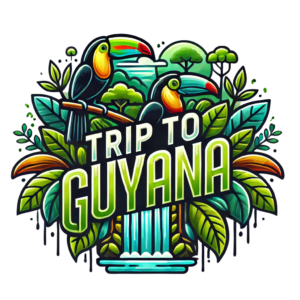Guyana, a nation known for its lush rainforests, rivers, and diverse culture, has increasingly become a point of interest for adventurous travelers. However, like many destinations, safety is a key concern. This article explores how safe Guyana is for tourists, highlighting the risks and providing tips for a secure visit.
Overview of Safety in Guyana
Guyana, located on the northern coast of South America, is a country of rich biodiversity and cultural heritage. It is often described as an untapped gem, offering unique eco-tourism opportunities, such as visits to the Kaieteur Falls and the Iwokrama Rainforest. However, potential visitors should be aware of the safety challenges they may encounter during their stay.
Crime Rates and Types of Crime
Crime in Guyana, particularly in the capital city, Georgetown, is a significant concern. The country has a high crime rate, with incidents of petty theft, armed robbery, and even violent crimes reported. Common crimes that affect tourists include pickpocketing, bag snatching, and credit card fraud. More serious crimes such as armed robberies and assaults are also a problem, especially in urban areas.
Areas of Concern:
- Georgetown: Visitors should be particularly cautious in downtown Georgetown, including areas near the seawall, Stabroek Market, and Bourda Market. These locations are known for higher rates of petty theft and other crimes.
- Interior Regions: While stunningly beautiful, the interior regions of Guyana can be dangerous due to limited law enforcement presence and the potential for violent crime. Group travel and the use of reputable tour operators are strongly advised.
Natural Hazards
Beyond crime, Guyana is also subject to natural hazards such as flooding, especially during the rainy season (May to August and November to January). The country’s infrastructure can struggle to cope with heavy rains, leading to waterlogged roads and disrupted travel plans.
Health and Safety
Health risks are another consideration. Guyana has cases of mosquito-borne illnesses such as malaria and dengue fever. Visitors should take preventive measures, including using insect repellent, sleeping under mosquito nets, and taking antimalarial medication if visiting rural areas.
Travel Tips for Staying Safe in Guyana
Avoid Isolated Areas After Dark
It’s advisable to avoid walking or driving in isolated areas after dark. Stick to well-lit, populated areas and consider hiring a trusted driver for transport, especially at night.
Stay Alert in Public Places
Pickpocketing and bag snatching are common in crowded areas. Always keep your belongings secure and be cautious in markets, bus stations, and busy streets.
Use Reputable Services
When booking tours or transport, always use reputable companies. This is especially important for excursions into the interior regions, where safety depends heavily on local knowledge and preparedness.
Keep Valuables Secure
Use hotel safes to store passports, electronics, and other valuables. Avoid displaying signs of wealth, such as expensive jewelry or large amounts of cash, as this can attract unwanted attention.
Be Cautious with Credit Cards
Credit card fraud is a risk in Guyana. Use cards only at trusted establishments and monitor your accounts for any unauthorized transactions.
Health Precautions
In addition to protecting against mosquito bites, travelers should ensure they are up to date on vaccinations and practice good hygiene to avoid foodborne illnesses.
Conclusion
Guyana offers breathtaking natural beauty and cultural richness, but travelers need to be mindful of safety concerns. By staying vigilant, avoiding high-risk areas, and following safety advice, visitors can enjoy a memorable and secure experience in this unique country. While there are risks, with proper preparation and caution, Guyana can be a rewarding destination for adventurous travelers.
Frequently Asked Questions
Is Guyana safe for solo travelers?
While solo travel is possible, it’s generally recommended that visitors, especially first-time travelers, join group tours or hire a guide to navigate the country safely. Solo travelers should be extra cautious in urban areas and avoid traveling alone at night.
What is the safest way to explore Georgetown?
The safest way to explore Georgetown is during daylight hours, preferably in a group. Stick to well-known tourist areas, and consider hiring a reputable guide or driver.
Are there any specific areas in Guyana to avoid?
Certain areas in Georgetown, such as the seawall, Stabroek Market, and neighborhoods like Buxton, have higher crime rates and should be avoided, especially after dark.
What health precautions should I take when visiting Guyana?
Visitors should take precautions against mosquito-borne diseases by using insect repellent and wearing long sleeves. Vaccinations for hepatitis A, typhoid, and yellow fever (depending on your travel history) are also recommended.
Can I use my credit card safely in Guyana?
While credit cards are accepted in many places, it’s best to use them at reputable establishments only. Be aware of the potential for fraud, and monitor your account regularly.
What should I do in case of an emergency in Guyana?
In case of an emergency, contact your country’s embassy or consulate in Georgetown. The local police can be reached by dialing 911, but response times may vary.








